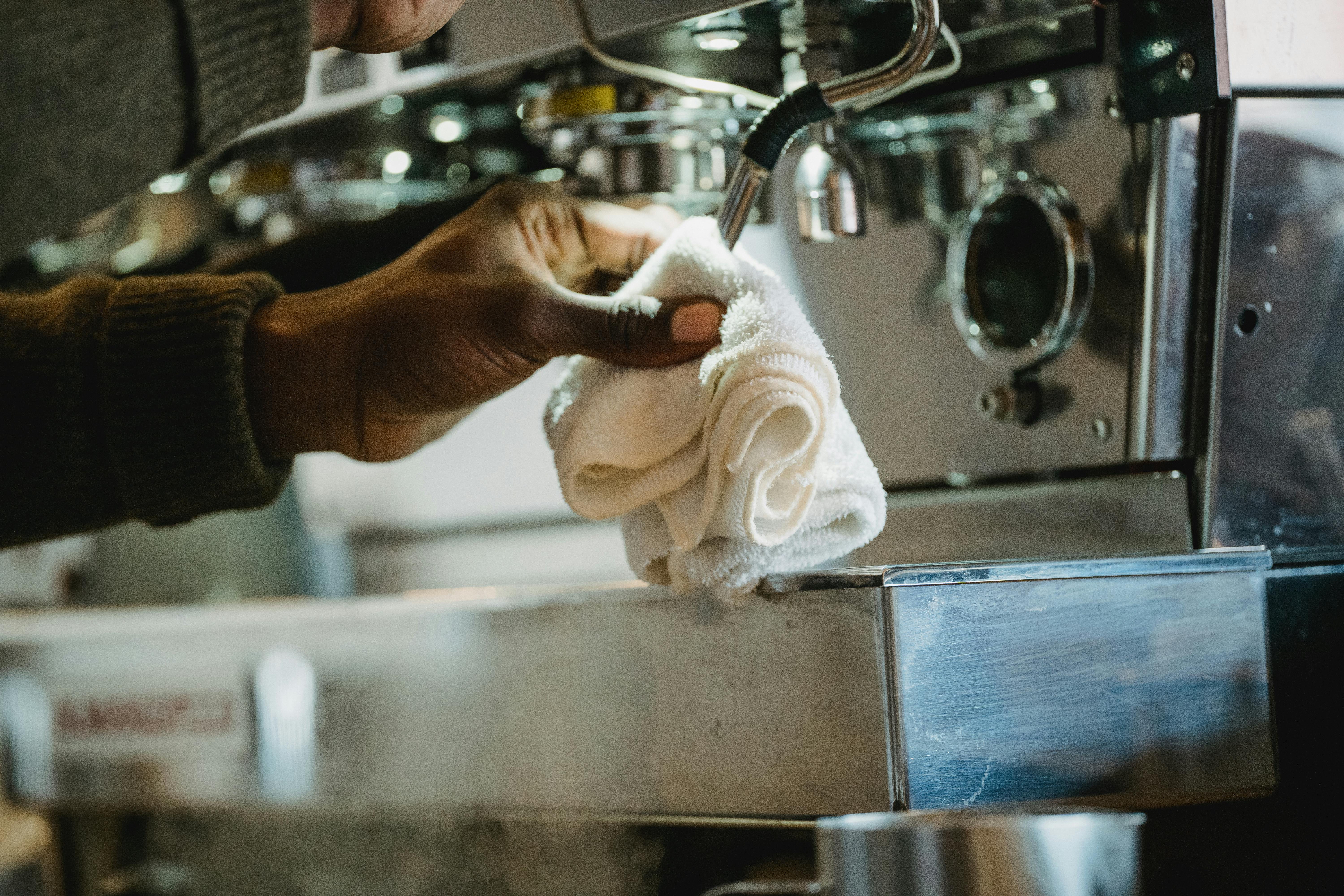We use cookies to make your experience better. To comply with the new e-Privacy directive, we need to ask for your consent to set the cookies. Learn more
order before 2pm for same day dispatch
Customer Service: +44 (0)330 111 25 23

So, you’ve finally achieved your dream coffee setup and you want it to run smoothly for years to come. A well-maintained machine not only performs better for you but also holds its value if you ever decide to sell it.
Most coffee equipment manufacturers provide detailed cleaning instructions in their manuals to help keep your setup in top shape. Among all your gear, the espresso machine is likely the most expensive and crucial investment even more than your grinders and brewers.
A commercial espresso machine is the heart of your coffee business. But behind the shiny exterior, coffee oils, milk residue, and hard water minerals are constantly building up. If ignored, they can lead to bitter or sour tasting espresso and machine breakdowns.
So, cleaning isn’t optional, it’s essential for flavour, customer satisfaction, and machine longevity.
Daily Cleaning
If your machine runs daily, you need to clean it daily. No exceptions.
Use an eco-friendly, barista-approved cleaner such as Pazazz for daily cleaning.
Weekly Cleaning
Monthly Cleaning
Kettles get limescale too, especially in hard water areas. Citric acid powder is cheap, safe, and fun to use, just dissolve it in some water, watch it fizz, and rinse when clean.Or simply use a commercial-grade cleaner like Pazazz, which costs half as much as other commercial cleaners but works just as well.
Moka pots and travel cups need regular cleaning too, don't let grime build up. And those little rubber rings (gaskets) inside moka pots? They wear out. If they feel stiff or you get leaks, it’s time to replace them, it's easy and cheap.
In short a bit of regular cleaning keeps everything tasting better and lasting longer and it doesn't have to be a chore.